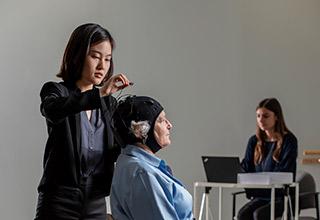Tips to Avoid Coronavirus Scams Targeting Seniors

As coronavirus has taken hold of our nation and created unprecedented social isolation, it’s also caused a surge in scams designed to exploit the fears and uncertainty surrounding the pandemic.
Scammers are offering COVID-19 or antibody testing, promises of a vaccine or cure, or ways to obtain out-of-stock products. They are also claiming to be from banks, the IRS, or other government agencies with false offers of stimulus payments or other financial relief. Hebrew SeniorLife’s Center for the Prevention of Elder Abuse and Neglect strives to empower older adults to protect themselves from financial exploitation.
Here are five tips to protect yourself and your loved ones:
- Carefully scrutinize any telemarketing calls or email solicitations from charities or businesses seeking your financial support during COVID-19. Do not provide your date of birth, social security number, financial data, or other personal information without verifying the authenticity of the request.
- Remember, the IRS will not call, text you, email you, or contact you on social media asking for personal or bank account information – even related to the economic impact or stimulus payments.
- Look out for scams that claim to have a product that will prevent, treat, diagnose, or cure COVID-19. Scammers offering products that are difficult to find may significantly inflate the price charge or never send the product after receiving your payment.
- Be cautious of COVID-19 tracking apps. These apps may be used to steal your sensitive information or control your phone. Authorized Massachusetts COVID-19 contact tracing program representatives will only call you from phone prefixes 833 or 857, and your phone will display “MA COVID Team.” These individuals will also never ask you for your social security number or other personal information.
- Scammers may send fake stimulus checks. Signs of fraudulent or counterfeit checks include: the check is for an odd amount, or the check requires you to visit a website or call a number to “confirm” or “provide additional information”.
At Hebrew SeniorLife, we are committed to bringing attention to the issue of elder abuse-- including financial exploitation -- and talking about it within our communities. Working together to recognize the signs and symptoms and take action, we can help seniors stay safe.
If you’re a Massachusetts resident and believe you are a victim of a scam or attempted fraud involving COVID-19, you can file a complaint with the Massachusetts Attorney General’s Office Consumer Advocacy and Response Division or by calling 617-727-8400. You can also report it by calling the Department of Justice’s National Center for Disaster Fraud Hotline at 866-720-5721 or by filling out the NCDF Web Complaint Form.
Blog Topics
Learn More
Innovation at HSL
Whether we're making discoveries or developing new teaching methods, HSL continuously works to improve the lives of older adults.





